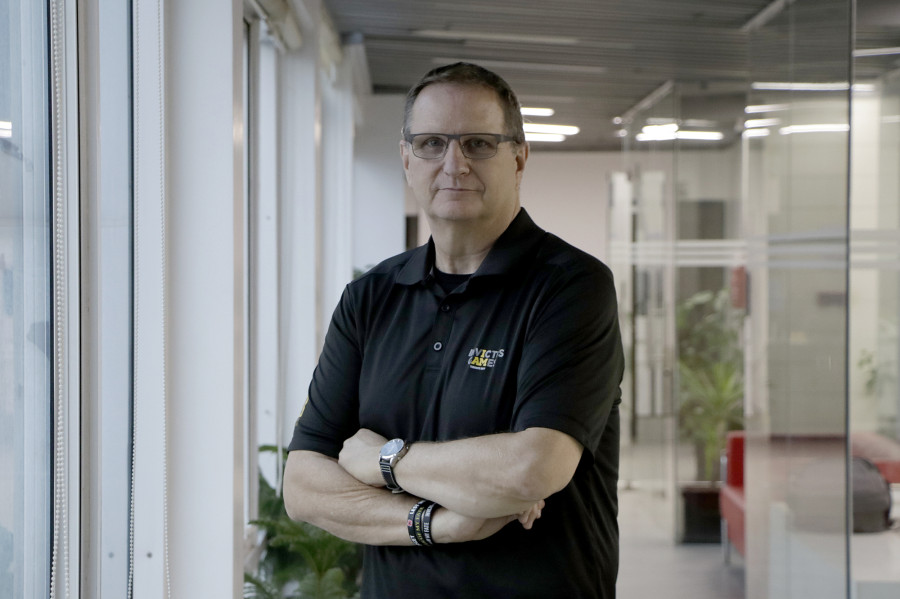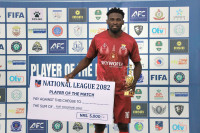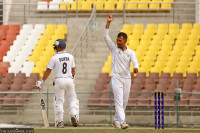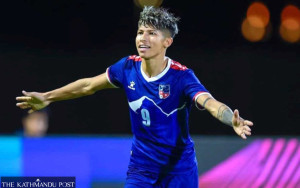Sports
Paul Bowes: These aren’t persons with disabilities—they are athletes with abilities
Bowes has also worked as head coach of the Canadian Invictus Wheelchair Basketball Team and assistant coach for the German men’s wheelchair basketball team.
Paul Bowes has been coaching wheelchair basketball for over 30 years. Most notably, Bowes was behind the Canadian men’s wheelchair basketball team, one of the most successful teams in the history of the game, winning three gold medals at the Paralympics. He has also worked as head coach of the Canadian Invictus Wheelchair Basketball Team and assistant coach for the German men’s wheelchair basketball team.
Bowes was recently in Nepal on the invitation of the International Committee of the Red Cross Mission to Nepal (ICRC) which had funded a sports camp organised by the Nepal Spinal Cord Injury Sports Association (NSCISA). During his week-long stay here, Bowes trained athletes and coaches for Nepal’s nascent wheelchair basketball scene. Timothy Aryal spoke with Bowes about his journey so far, what drives him as a coach and his experience in Nepal.
This interview has been condensed for clarity.
How did you come to coaching wheelchair basketball?
As a short guy growing up, I didn't know anything about basketball. I’m not even a basketball player; I played hockey and golf and all kinds of other sports. But I first watched wheelchair basketball in 1985 after my stepson lost both of his legs in a train accident. I was fortunate enough that I got to learn the game through my stepson and his team. In 1988, I started coaching the team and started teaching them sportsmanship and the philosophy of the sport. And 31 years later, I am still coaching.
What's your philosophy of the game, in terms of tactics, values and team spirit?
The team I coached during my first Paralympics had one heart, one mind and one soul. Not every team can be taught, not every team can be fast. You have to adjust yourself to the strengths of your team members. If you have a really strong or really fast team, that's what your strengths are; if you're tall, work on the inside game.
Because of the classification system [in wheelchair basketball, players are classified and given ranks according to the extent of their disabilities, from 1 to 4.5; one team should have players that in total rank 14], you just don't trade your centre point for point guard. You may have to change two or three players because you've only got one really good centre. So when you pull that centre out, you may have to go to a pressing game; you may have to go to a totally different game. Therefore, you have to be willing to change and adapt to the line-ups that you need to put out there.
What considerations do you have to make while coaching the disabled?
There aren't a lot of differences between coaching able-bodied players and those with disabilities, because they're athletes first and foremost. You can push them just as hard but you really have to be wary of their exhaustion and hydration level. These aren’t persons with disabilities; they are athletes with abilities. I believe that very, very much.
What was your experience like coaching in Nepal?
We had a very exciting time. There were 42 registered players but by the end, there were 44, all willing to play sports. The players here are at a bit of a disadvantage because of their equipment but not because of their heart or their drive to compete. When I saw the game, I was like, wow, they're here to play a sport, no matter what their chair was like. I think that it would be great if they could get many wheelchairs that are sport chairs. But that hasn’t stopped their drive and it was great to see that. They were just out there playing, having fun and the wheelchairs disappeared.
Can Nepali wheelchair basketball players do well despite the apparent shortage of infrastructure and facilities? How do you compare the scene in Canada and Nepal?
In Canada, if I had 40 athletes, I would have four gyms and 16 or 20 baskets. For our training camp this week, we had one gym with two baskets. But we adapted and overcame that and the players were awesome to work with. Their skills really improved drastically. We're hoping that the infrastructure will improve.
There are some amazing players. They may be a bit rough because they don't have access to top coaching techniques, but I think there's a big potential to become pretty good. They just have to know the nuances of the game a little better. But when I look at the different places that I've coached—from London to Mexico and Germany to Nepal—if you ask me what the differences are, then I’d say there really are no differences, because they all want to play basketball.
What are your suggestions for those with disabilities who want to play sports?
For me, it's about the idea that a person with a disability has the ability, but it depends upon how you provide opportunities. So someone with ability can participate and be healthy their whole lives. Sports teaches them life skills as well. You could be 28 years old or 35 years old and lose a leg or become a victim of a spinal cord injury. You will have to relearn how to go to the bathroom again, how to get around, how to transfer onto your toilet, all the simple things that we take for granted.
So when sport comes along, when you enter a gymnasium, and there's a whole bunch of other people that are sitting in wheelchairs, they're actually teaching you life skills, they're showing you that there is life after your accident. Suddenly you become an athlete, you're going out for dinner with people, you're getting out in the community and you’re doing great things, which is awesome.
You can be in a new situation and be depressed, or you can come out and play different sports that are there. It just opens up your eyes. I call it the transformational power of sports.




 9.7°C Kathmandu
9.7°C Kathmandu














